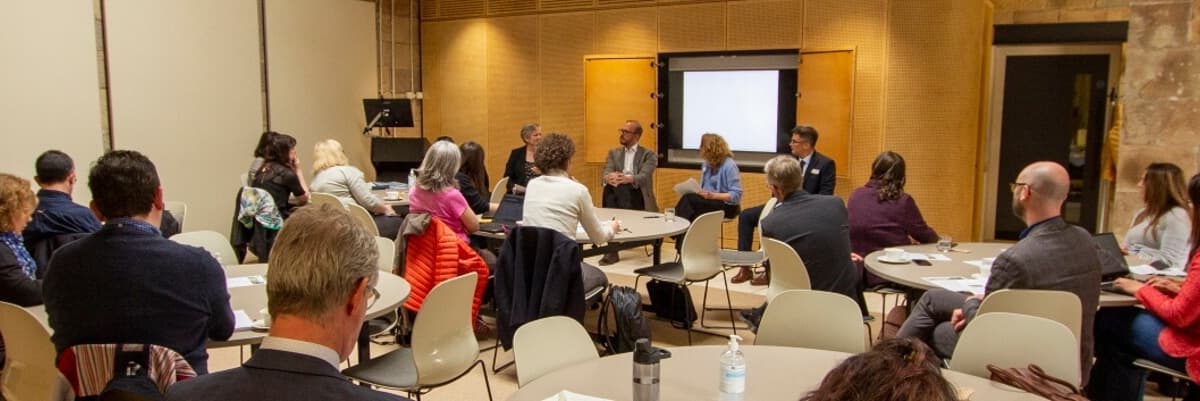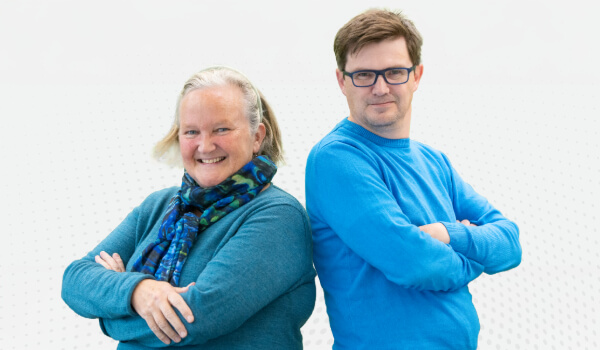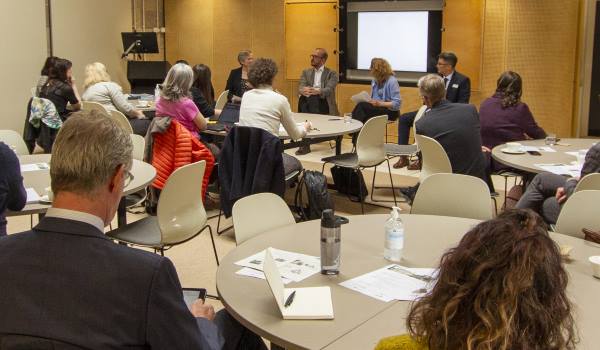[Music]
[Sara Brennan] Hi, I'm Sarah Brennan. I'm Positive Business Director for Pentland Brands, that's a family-owned business.
I think the themes that have emerged across the two days have been the interconnectedness between looking at issues around the environment, such as the biosphere and what we're doing from a sustainability lens, but also what we need to do from a from a people lens as well. So how that you can't just focus on one without without looking at the other.
It was really interesting some of the conversations that came out when looking at gender and and the role of gender in in family business and, and how that then plays out in, in the wider biosphere as well.
[Helen Tregidga] Hi, my name is Professor Helen Tregidga, and I'm one of the Co-directors of the Centre for Research into Sustainability which is a cross-disciplinary or interdisciplinary research centre at Royal Holloway, University of London.
Well, the two days have really been an open conversation amongst a really diverse group of researchers and practitioners drawing on family business and resilience, and I think by its very nature has just led to a large number of different areas.
For me some of the key were around challenges, and that started because of the opening presentation around resilience in the biosphere. So challenges being one, and the other being scale, and the need to work across multiple scales and and across multiple areas.
[Sarah Brennan] The distinctive aspects that's emerged for me is the need to take a intersectional approach to this. I think if we don't do, look at the interconnectedness and the intended and unintended consequences, we can end up where we operate in silos, and I think this is where today has been fantastic is having the different academic disciplines come together and look at it from a multi-disciplinary lens, but also inviting family business and some examples from family business along so that we can we can all come together to helpfully perforate some of those silos that we're perhaps currently working in.
[Helen Tregidga] So some of the things that have emerged from the conversations that I think are quite, for me, were a bit distinctive were the idea of the importance of place. And, and while i think that that is something that we often consider we've really had some quite big conversations about the importance of place, and that's important socially, community and also for the environment.
The other one is around collaboratio,n and the need to collaborate. And I think the openness of the conversations, the willingness of people to to engage has meant that the openness and collaboration has really has, has been really important.
[Sarah Brennan] I think the themes that have emerged across the two days have been the interconnectedness between looking at issues around the environment, such as the biosphere and what we're doing from a sustainability lens, but also what we need to do from a from a people lens as well so how that you can't just focus on one without without looking at the other. It was really interesting some of the conversations that came out to when looking at gender and and the role of gender in in family business and and how that then plays out in in the wider biosphere as well.
[Helen Tregidga] I know a lot more about family business than, than I did before the seminar and also the similarities of some of the discussions that is being had in family business that are had ther areas of responsible business or social enterprises.
[Sarah Brennan] I think the next steps are to keep these conversations going to, to provide that the platform to have the different disciplines in academia and the different disciplines in business come together, because I think it's through that collaboration that we can really get into some of the issues that we're facing as a, as, as individuals, but also as businesses and as institutes as we're trying to tackle some of the big challenges that are going on around the world currently. So let's keep this conversation going, would be my advice as next steps.
[Helen Tregidga] well I think the next steps in the conversation will be, would be to continue with, with what we've discussed in the last few days, but also perhaps bring in different groups as well. So I think one of the benefits has been the diversity of participants, and so other community groups, other groups that were perhaps not represented in today's disc, or the last two days' discussio,n would be it would be great to see those opened up to more and more.
[Music]




